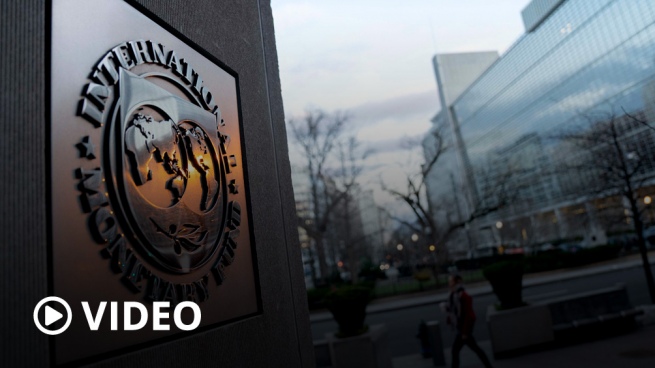For the IMF, “the important thing is to prioritize the poor and protect the most vulnerable”
WATCH VIDEO
The International Monetary Fund (IMF) highlighted this Tuesday the importance of, in the current international context, “prioritizing the poor and protecting the most vulnerable” and, in relation to Argentina, reaffirmed the importance of “the implementation of the program” agreed last March for the refinancing of the debt contracted during the administration of Mauricio Macri.
This is how he expressed it director of the agency’s Western department, Ilan Goldfjanwho, however, indicated that in the context of the current war in Ukraine and the international price situation, the assumptions of that understanding could change, such as inflation, for example, and stated that eventual changes in these points will be considered in the frame of the first review.
He also added that Any changes that may occur in these points will be considered in the framework of the first review. that the IMF technicians will carry out in Argentina in may next.
The Fund official emphasized that “the important thing is prioritize the poor and protect the most vulnerable“, since the price and the high cost of energy derived from the war, “is temporary, as it was in the pandemic.”
“In Argentina today the name of the game is implementation”Ilan Goldfjan
Meanwhile, in relation to the agreement reached between the organization and Argentina for the refinancing of the debt for more than US$ 44,000 million contracted in the last stage of the management of Cambiemos, today Together for Change, the director of the Occidental department of the IMF reiterated that the important thing is the “implementation of the program”.
In the framework of a press conference, he remarked that “The goals are not going to change.”
Specifically, he pointed out that “the fiscal goals, of reserves, because they are the objectives of the program” agreed with Argentina, in the same line that the Minister of Economy, Martín Guzmán, expressed it last week.
In this regard, the Argentine official had referred to the agreement with the IMF after the meeting with Kristalina Georgieva: “The economic program helps Argentina to continue growth and attack inflation”for which “the goals are not going to change” but rather “social protection policy is being reprioritized given the impact of the war on food prices.”
The head of the Palacio de Hacienda explained that in said meeting it was analyzed that “the fiscal path was in line with what was agreed, there is overcompliance with respect to the monetary issue reaching 0.15% of the product” and “growth in the accumulation of reserves was obtained international”.
Guzmán was confident in Washington DC that he will be able to pass the first review of the program with the International Monetary Fund (IMF), scheduled for May, as confirmed today by the Brazilian economist and also former head of the Central Bank of Brazil.
This review will be key to triggering the disbursement of approximately US$4,150 million, which will serve to cancel the maturities of the debt with the agency for US$3,800 million scheduled for next June, and accumulate the rest in reserves.
“In Argentina today the name of the game is implementation”he remarked, just as his boss, Kristalina Georgieva, did in the last conference when he referred to Argentina.
“Reviews are normal in all programs. We are prioritizing the measures so that the goals are met”he detailed.
Likewise, the Fund warned of the risks of inflation in the region, after exposing the economic projections for Latin America, which were presented last week with the World Economic Outlook (WEO).
In a work published this Tuesday in the Fund Blog prepared by Goldfajn, Santiago Acosta-Ormaechea, main economist; and Jorge Roldós, deputy director, warned that “the war in Ukraine, the increase in inflation, the more restrictive financial conditions, the economic slowdown of the main trading partners and social unrest can worsen growth prospects” in Latin America.
“Last year’s growth was 6.8% in the region but we do not expect this to happen again, growth is slowing down,” Goldfajn said during the press conference, along the same lines as the text’s warning about “risks unusually high” for the region.
Latin America and the Caribbean is expected to grow 2.5% this year, far from the 6.8% registered in 2021.
In this sense, he confirmed that a 4% growth is expected for Argentina this year; for Brazil it projects an increase of 0.8%; for Chile it is 1.5% while for Mexico a growth of 2% is estimated among the largest economies in the region.


















